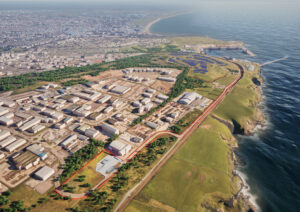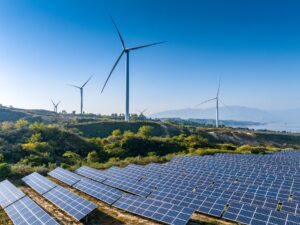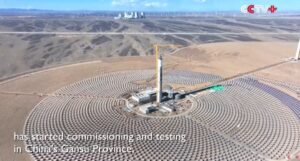Industry is ‘off track’ to meet climate, energy and air pollution goals
The majority of sectors and technologies are failing to keep up with their long-term climate, energy and air pollution goals, according to a report published last week (June 5) by the International Energy Agency (IEA).
In the report, researchers from the IEA have assessed a full range of energy technologies to provide a clear outline of clean energy progress made in 2019.
According to the report, only 6 out of 46 technologies and sectors were ‘on track’ to reach the necessary goals to meet the targets set out in the Paris Climate Agreement.
Many of the largest sources of global emissions remain ‘off track.’ For example, the power sector, which accounts for around 40% of energy-related CO2 emissions, remains off track for the third year in a row.
The building sector also remains ‘off track,’ with emissions rising in 2019 to an all-time high.
Examples of technologies that remained ‘on track’ include electric vehicles, lighting and data centres, but according to the authors of the report, these industries account for only a small share of potential emissions reductions.
Another point for concern identified in the report is the reduction in fuel economy improvements as car buyers continue to purchase bigger vehicles. This is also greatly affecting targets to reduce air pollution.
According to the authors, the coronavirus crisis could be detrimental to future clean energy progress. A prolonged economic decline and low fossil fuel prices may delay some clean energy investments, and sustainability and climate issues may slip further down political agendas.
Dr Fatih Birol, the IEA executive director said: here were warning signs even before the crisis, which is now threatening to further slow the development of clean energy technologies,
This is not the time to take our foot off the pedal. Our latest findings make clear the urgent need for governments to do more to foster the growth of these technologies, which can create jobs, stimulate economic growth and also help us accelerate transitions to cleaner energy systems.’
Photo Credit — Pixabay


















In the face of a systemic crisis, neither countries, companies nor individuals can stand alone. Now, more than ever, we feel the urge for humanity to address a future inevitable crisis, one poised to be bigger and even longer-lasting than the current crisis we are facing – climate change.
The climate change crisis has far-reaching consequences for humanity, destroying the ecosystem on which we depend and poisoning the only planet capable of supporting life.
We should see that, before 2050, wind power and solar power will become the new coal for generating power, batteries and hydrogen fuels will be the new oil, and AI and IOT will turn into the new power network. Humankind by then will step into a beautiful era of clean energy.